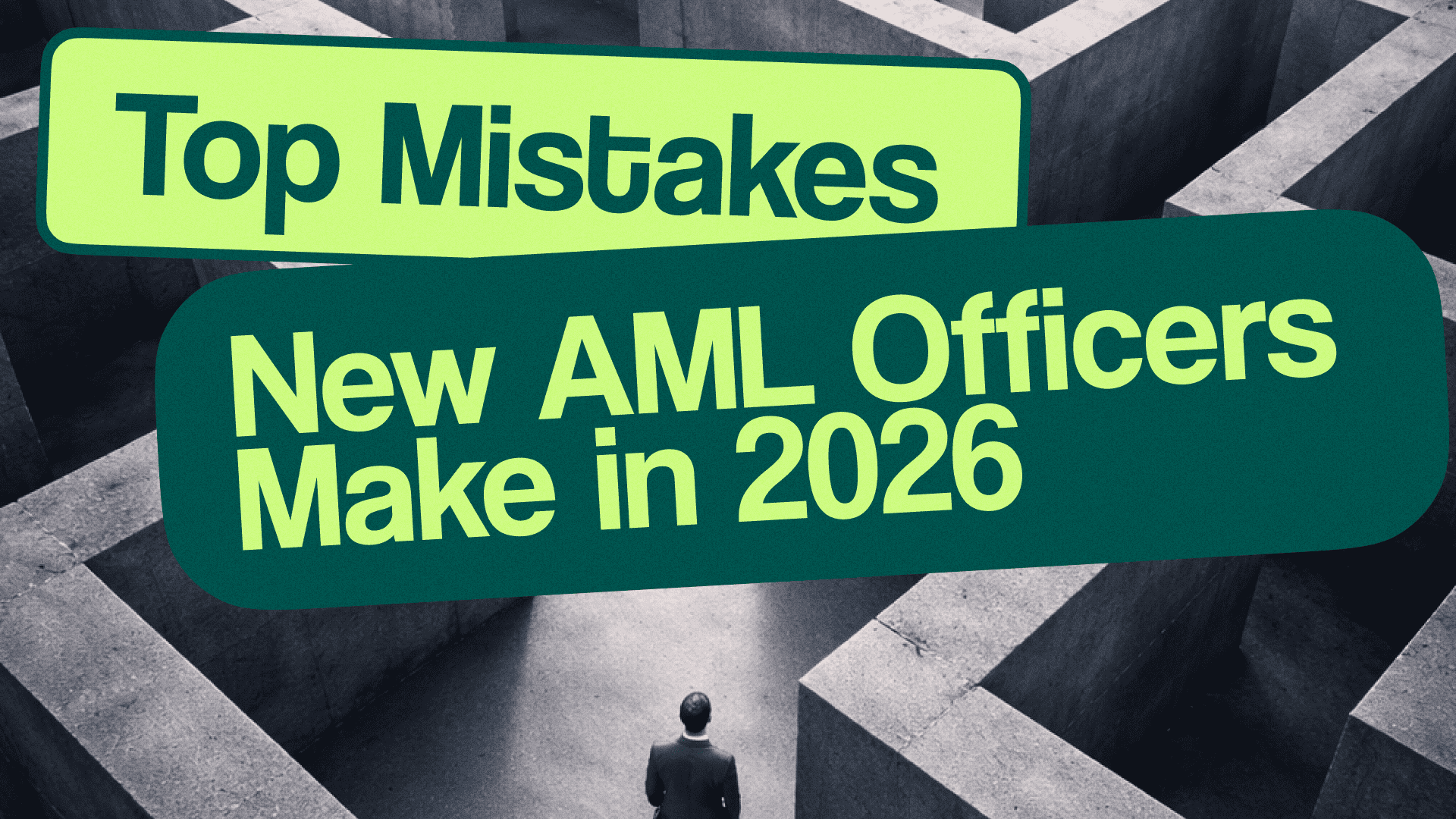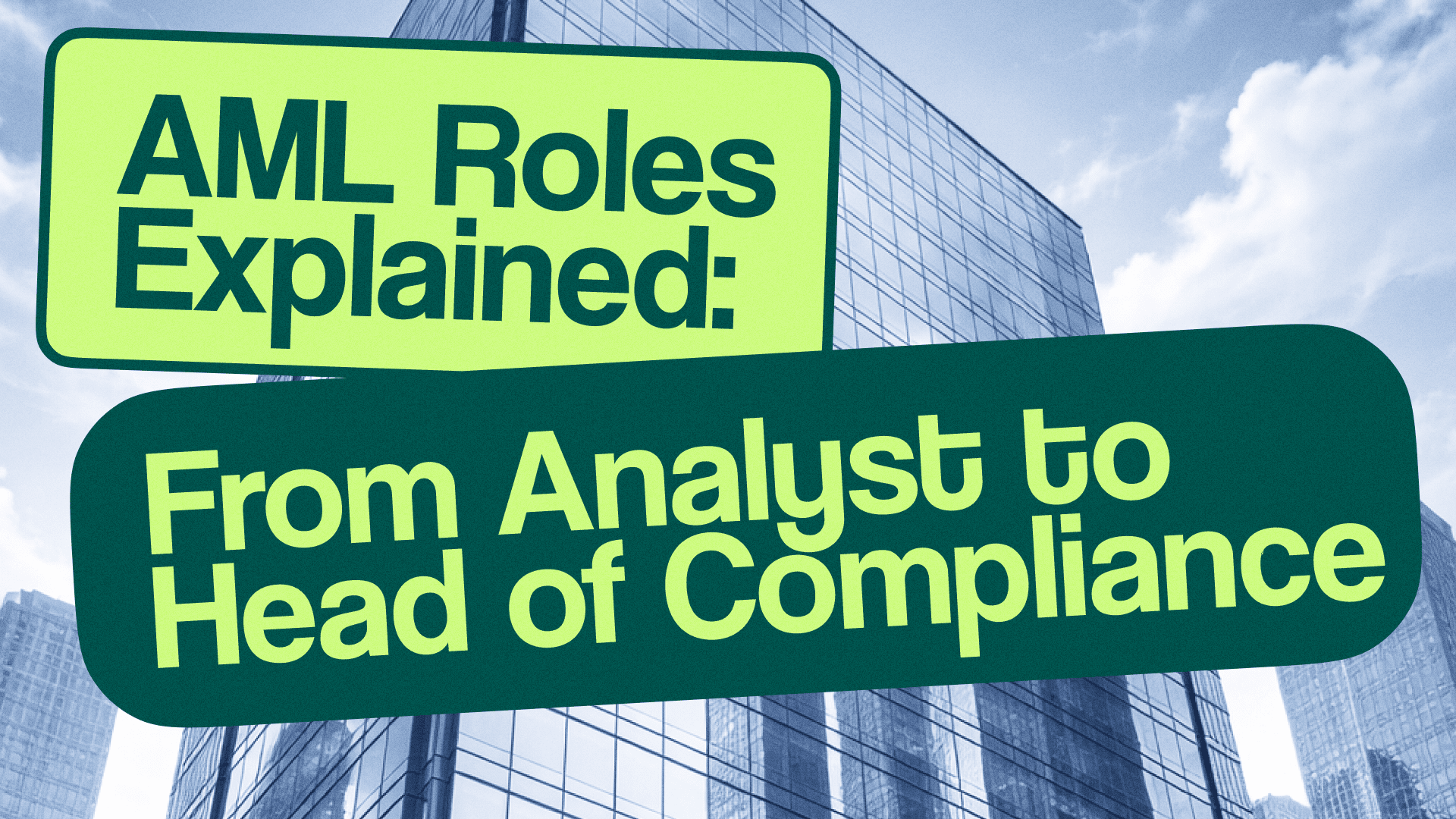Specialists in anti-money laundering (AML) play a crucial role in the financial sector by identifying and preventing financial crime, such as preventing money laundering, fraud, and terrorist financing. This ensures that regulatory standards are adhered to and helps preserve the integrity of financial systems. So, what is an AML specialist? The quick guide deals with Anti Money Laundering specialists’ roles, tasks, as well as their salaries on average.
What Does an AML Specialist Do?
So, what is an Anti Money Laundering specialist and what does this person do? A short anti money laundering job description can sound like this: an AML specialist is responsible for reviewing transactions and activities to detect any signs of money laundering, financial crime.
They analyze information, investigate issues, and report activities that look suspicious to the appropriate authorities. Their goal is to ensure compliance with AML compliance regulations and guidelines set forth by regulatory bodies, including the Financial Action Task Force.
Overall, an Anti Money Laundering specialist is a general nomination: there are different subtypes. Let’s take a look:
Transaction Monitoring Specialists
- Role: Examine financial transactions for signs of suspicious activity.
- Responsibilities: Observe transactions, study anomalies, and change monitoring parameters.
Reporting Officers:
- Role: Prepare and submit reports on suspicious activities.
- Responsibilities: Create and file SARs/STRs, undertake report quality checks, and maintain supporting documentation.
Compliance Analysts:
Role: Ensure adherence to anti money laundering regulations and policies.
- Responsibilities: Carry out compliance checks, monitor regulatory compliance, and identify financial crime risks.
AML Investigators:
- Role: Conduct complex investigations on possible money laundering cases.
- Responsibilities: Collect information, write reports, and work with law enforcement agencies.
Anti Money Laundering Risk Managers:
- Roles: Measure and manage the level of risk related to money laundering.
- Responsibilities: Create frameworks for risks and develop controls.
Sanctions Screening Analysts:
- Role: Comply with sanctions laws.
- Responsibilities: Check transactions and customers’ names against sanction lists; investigate potential matches; notify non-compliant activities.
If you’re looking to pursue a career in this field, consider enrolling in an AML certification program to enhance your qualifications and knowledge as an AML officers.
Responsibilities of an Anti Money Laundering Specialist
Hopefully, our anti money laundering job descriptions are clear. Let’s move on to the main responsibilities summarized. The responsibilities of the majority of Anti Money Laundering specialist jobs include:
- Transaction monitoring: Examining transactions for possible money laundering, financial crime cases.
- Investigations: Carefully investigating unnatural activities while recording them comprehensively.
- Compliance reporting: Reporting all findings according to legal requirements to ensure AML compliance.
- Policy development: Assisting in developing new and reviewing existing policies on preventing money laundering.
- Training and education: Educating its personnel on anti-money laundering rules within its jurisdiction.
- Risk assessment: anti money laundering specialist jobs include assessing possible threats to the company’s welfare and putting measures in place to reduce them.
What Skills Do Anti-Money Laundering Specialist Use?
AML specialists must have various skills that can help them perform their duties effectively. These are some of those skills:
The Ability to Interpret Legislature
To do this they must understand complex legal frameworks regarding money laundry contained not only in legislations but also other statutory instruments. This ensures adherence by the organization concerned with regard to relevant laws or regulations.
Complete Understanding of the Firm’s Business
One should be familiar with how businesses run including what role each firm plays towards facilitating goods or services delivery. Thus, such knowledge assists identifying suspicious activities that may suggest money laundering practices through which they are done secretly under cover-ups.
Consistency and Insight
An anti money laundering professional must use consistent methods and possess an intuitive knowledge of transactional patterns. That way, there will be no suspicion of any form overlooked while in the possession of the distinct signs of money laundering.
Supporting AML Specialists with Technology
Technology is a key element in anti-money laundering. For instance, AML specialists apply various software in their work including monitoring transactions, analyzing data and reporting. Thus, they have to be adept at using these technologies for improved efficiency and accuracy.
A Comprehensive Understanding of Data Sources
AML specialists should know what each source entails; hence they have a full understanding of them. Such sources include internal databases, public records among others which provide insights for their investigations.
Critical Thinking
This job requires critical thinking on the part of professionals dealing with AML as most times they would have to confront intricate issues and make proper judgments. They should have skills to analyze data, identify patterns and draw logical conclusions that can help in detecting or preventing such activities as money laundering from taking place within organizational framework.
How Much is the Average Salary of an Anti-Money Laundering Specialist?
The salary for an Anti-Money Laundering Specialist may differ; this depends on factors like location, experience, and the firm that employs you. How to get a job in AML with no experience? It may be a bit difficult, and you will get less money. In America, a typical AML specialist’s basic pay per year is worth $71,000.
Entry-level guys may earn around $65,000 annually, while those with more AML experience can earn upwards of $77,000 or more. These cities also have higher living costs and greater demand for AML skills in the major financial centers, so they tend to pay better.
Wrapping Up
AML Specialists are important in protecting the financial sector from illegal activities. They have diverse responsibilities that involve combinations of legal background knowledge, analytical skills, and technology competency. Hopefully, our guide gives a better understanding of their roles and expertise so that we can appreciate their significance in the finance business industries.









